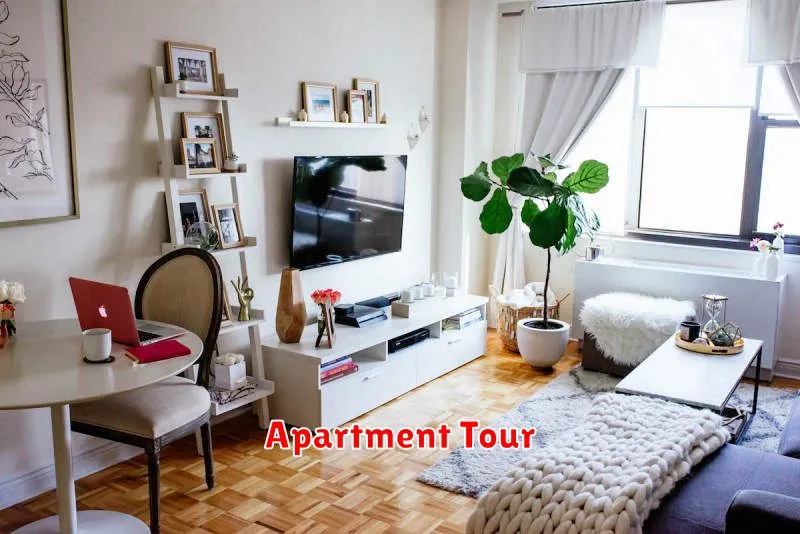Moving into your first apartment can be an exciting time! There’s so much to think about, from decorating to finding the perfect furniture. But before you get carried away with the fun stuff, make sure you take the time to do a thorough apartment tour checklist. This will help you avoid any surprises down the road and ensure that you’re renting a safe and comfortable space. Keep reading for a comprehensive list of things to check during your apartment tour.
Essential Items to Check During an Apartment Tour
An apartment tour is your opportunity to see if the place is truly right for you. It’s not just about the aesthetics, but also about checking for any potential issues. Before you sign the lease, take a good look around and make sure you’re comfortable with everything. Here are some essential items to check during your apartment tour:
1. Appliances: Test out all the appliances, including the stove, oven, refrigerator, dishwasher, and washing machine (if applicable). Make sure they all work properly and are in good condition.
2. Plumbing: Turn on the faucets and check for leaks. Flush the toilet and make sure it works properly. Run the shower and check the water pressure. If you’re concerned about water pressure, ask your landlord about the average pressure for the building.
3. Windows and Doors: Make sure all the windows and doors open and close properly. Check for any cracks or drafts. This is important for security and energy efficiency.
4. Lighting: Check all the light fixtures and make sure they work. Pay attention to the overall lighting in the apartment. Is it bright enough for your needs?
5. Ventilation: Check for ventilation in the bathroom and kitchen. This is important for removing moisture and preventing mold growth.
6. Storage: Make sure the apartment has enough storage space for your needs. Check the size and condition of closets, cupboards, and any other storage areas.
7. Noise Level: Try to get a feel for the noise level in the apartment. Is it quiet or noisy? Are there any sounds that bother you? Consider the time of day of your tour. If it’s a weekend afternoon, the apartment might be quieter than it would be during a weekday morning.
8. Security: Check the security of the apartment. Are there locks on the windows and doors? Is there a security system? Are there any security cameras in the common areas?
9. Parking: If parking is included, check out the parking situation. Is there enough parking available? Is it safe and secure?
10. Neighborhood: Take a walk around the neighborhood and get a feel for the area. Are there any amenities nearby that are important to you, such as grocery stores, restaurants, or parks?
Don’t be afraid to ask questions. It’s your right to know about everything before you sign a lease. By checking these essential items, you can help ensure that you are getting a safe and comfortable apartment that meets your needs.
Inspecting the Kitchen and Appliances
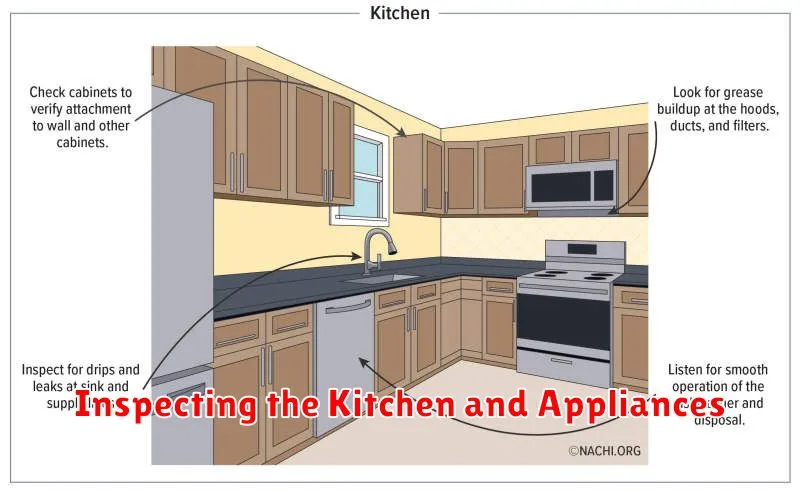
The kitchen is the heart of any home, so it’s essential to make sure it’s in good working order before you sign a lease. Start by checking the appliances:
- Refrigerator: Does it cool properly? Are there any leaks or rust? Make sure the freezer compartment also works well.
- Stove/Oven: Turn on all burners and check if the oven heats up evenly. Look for any signs of damage or malfunction.
- Dishwasher: Run a cycle to ensure it’s working correctly. Check for leaks or any issues with the water drainage.
- Microwave: Test the microwave by heating something up. Listen for any unusual noises or signs of damage.
Next, move on to the kitchen cabinets:
- Check for any signs of damage or wear and tear. This includes loose hinges, chipped paint, or broken shelves.
- Open all drawers and make sure they slide smoothly. Any sticking or difficulty opening is a red flag.
- Make sure the cabinets are clean and free of any lingering odors. This is especially important if you have any food allergies or sensitivities.
Finally, don’t forget to check the sink:
- Run the water to ensure it’s hot and cold. Look for any leaks or drips from the faucet.
- Check the garbage disposal to make sure it’s working properly.
By thoroughly inspecting the kitchen and appliances, you can ensure you’re getting a unit that’s in good condition and ready to be enjoyed.
Bathroom Check: Functionality and Condition
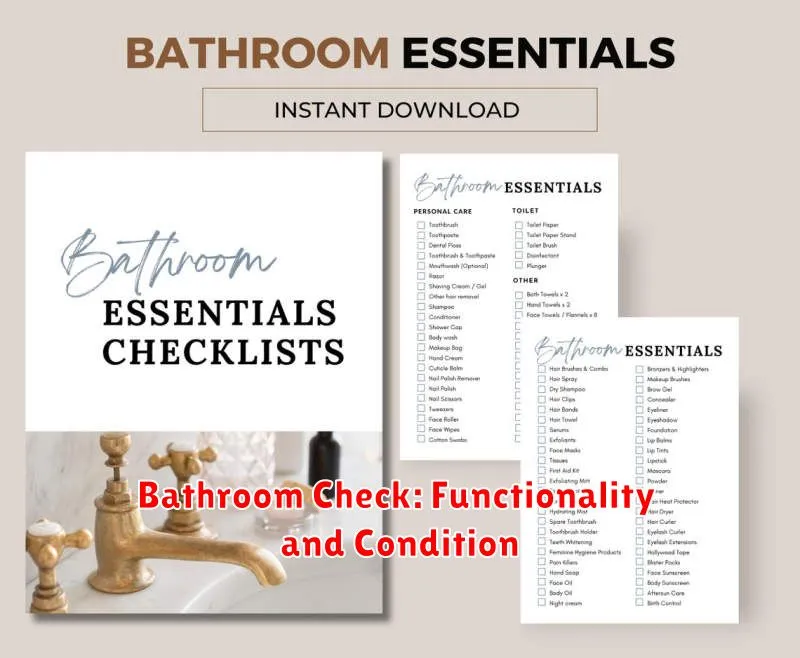
The bathroom is a crucial part of your living space, and it’s essential to make sure it’s in good working order. Here are some important things to check:
- Toilets: Flush the toilet a few times to check for leaks or clogs. Make sure the water fills and drains properly.
- Showers and Tubs: Turn on the water and check for leaks. Run the water for a few minutes to ensure good water pressure. Inspect the showerhead and the tub for any cracks or damage.
- Sinks: Turn on the water and check for leaks. Test the drain to make sure it’s working properly.
- Ventilation: Check that the bathroom has adequate ventilation, which will prevent mold and mildew from growing. Look for a fan and make sure it works properly.
- Mirrors and Lighting: Check the mirrors for cracks or damage. Make sure the lighting is sufficient for getting ready in the morning.
- Flooring: Inspect the floor for any signs of water damage, such as warping or discoloration.
If you notice any problems with the bathroom, be sure to point them out to the landlord before you sign the lease. Don’t hesitate to ask questions if you’re unsure about anything.
Assessing the Living Space and Bedrooms
The living space and bedrooms are where you’ll spend most of your time, so it’s crucial to assess them carefully. Here’s a checklist to guide you:
Living Space
- Size: Is the living space large enough for your needs? Consider the furniture you want to bring and how you’ll use the space.
- Layout: Does the layout flow well? Is it easy to move around? Are there any awkward corners or dead spaces?
- Natural Light: How much natural light does the living space receive? Is it sufficient for your needs? Are the windows in good condition?
- Outlets: Are there enough electrical outlets for your devices and appliances?
- Flooring: Is the flooring in good condition? Is it easy to clean?
Bedrooms
- Size: Are the bedrooms big enough for your beds and other furniture? Do they feel spacious?
- Storage Space: Is there enough storage space in the bedrooms? Do they have closets? Are the closets big enough?
- Natural Light: Do the bedrooms receive enough natural light? Do they have windows in good condition?
- Flooring: Is the flooring in good condition? Is it easy to clean?
Remember to check for any signs of damage or wear and tear in both the living space and bedrooms. Note any concerns you have so you can discuss them with the landlord or property manager.
Safety and Security Features to Look For
When touring apartments, safety and security should be top of mind. Here are some key features to look for:
Secure Entry: Look for buildings with locked entryways, intercom systems, and secure doorman or concierge services. These features deter unauthorized access and add an extra layer of protection.
Well-Lit Areas: Well-lit hallways, stairwells, and parking areas are essential for safety. Ample lighting discourages criminal activity and makes it easier to see potential hazards.
Working Smoke Detectors & Fire Extinguishers: Ensure that smoke detectors are present and operational, and that fire extinguishers are readily available. These safety features are crucial in case of emergency.
Neighborhood Safety: While on the tour, pay attention to the surrounding area. Observe the level of foot traffic, overall cleanliness, and any visible signs of crime. A safe neighborhood contributes significantly to your overall well-being.
Security Cameras: Security cameras in common areas act as a deterrent and provide valuable evidence in case of an incident. Inquire about the location and functionality of any security cameras within the building.
Evaluating Storage Space and Closet Options
Storage space is crucial, especially if you’re moving from a larger home or have a lot of belongings. Before you commit, take an honest look at the closet and storage space provided in the apartment. Consider the size and organization of the closets, the type of shelving, and any additional storage areas like a pantry or linen closet. Ask yourself these questions:
- Will your current wardrobe and belongings fit comfortably?
- Is there enough storage for seasonal items?
- Do you have any specific storage needs, like space for sports equipment or a craft room?
Don’t hesitate to open closet doors and drawers to get a feel for the storage space. Pay attention to the condition and functionality of the closets and storage areas. Is there sufficient lighting? Are the shelves sturdy and the drawers functional? These factors can impact your overall satisfaction with the apartment.
Checking for Signs of Pests or Damage
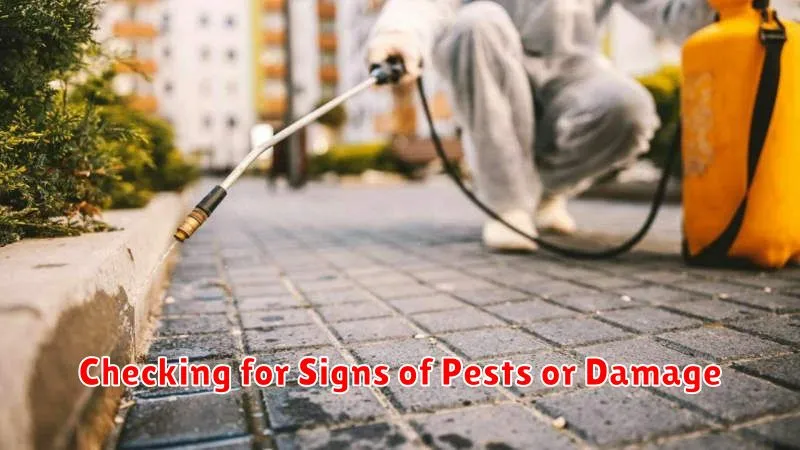
Before you sign the lease, it’s crucial to examine the apartment for any signs of pests or damage. This could save you a lot of hassle and money in the long run. Start by checking for evidence of rodents, including droppings, gnaw marks on furniture or walls, and urine stains. Keep an eye out for insects, especially cockroaches, ants, and bed bugs. Look for signs like droppings, shed skins, or even the insects themselves. Pay attention to any water damage, such as leaks, mold, or warping wood. If you notice any of these issues, be sure to discuss them with your landlord or the property manager. Take photos of any problems as documentation.
Understanding Lease Terms and Agreements
Before you sign on the dotted line, take the time to carefully read through your lease agreement. It’s the contract that outlines the terms of your tenancy and outlines your responsibilities as a renter. Here are some key points to understand:
Lease Duration: This specifies the length of your lease, typically 12 months. Be aware of any renewal options or early termination clauses.
Rent Amount and Payment Schedule: This section clarifies your monthly rent amount and the due date. Make sure you understand any late fees or penalties.
Security Deposit: This deposit is typically returned to you at the end of your lease, minus any deductions for damages. Understand how the security deposit is handled and how it will be returned.
Pets: If you have pets, ensure the lease allows them and any restrictions. You may need to pay a pet deposit or additional fees.
Maintenance and Repairs: Understand your responsibilities for maintaining the apartment. Be familiar with the landlord’s procedures for reporting repairs and who covers the cost.
Quiet Enjoyment: This clause guarantees your right to peaceful occupancy, but also outlines reasonable restrictions like noise levels or hours of operation for common areas.
Termination Clause: Understand how the lease can be terminated by either party and what conditions might apply. This includes reasons like breaking the lease or the landlord needing to use the property.
Legal Aid: If you have any questions about the lease agreement, don’t hesitate to seek legal advice. Understanding the terms will help you avoid potential issues later on.
Questions to Ask the Landlord or Property Manager
Once you’ve checked out the apartment and are ready to ask some questions, be sure to write down or take photos of anything you have concerns about. This way you can reference them later.
Here are some important questions to ask the landlord or property manager during your apartment tour:
- What is the application process like?
- How long is the lease term?
- Is there a security deposit?
- Are there any pet restrictions?
- What is the parking situation like?
- Is there laundry in the unit or on-site?
- Are utilities included in the rent?
- Is there a move-in/move-out fee?
- Are there any other fees associated with the lease?
- Are there any rules or regulations for tenants?
- What is the process for maintenance requests?
- Is there anything else you should know about the apartment or building?
Don’t be afraid to ask any questions you may have about the apartment or lease. It’s important to get all the information you need before signing a lease. You can also bring a list of questions with you to the tour.
Documenting Your Apartment Tour
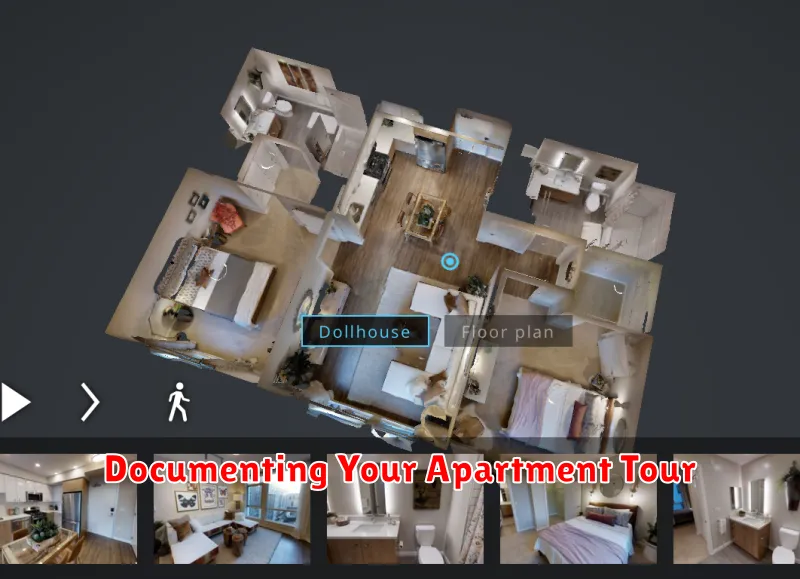
Before you sign a lease, it’s crucial to document your apartment tour thoroughly. This helps prevent any disagreements or misunderstandings with your landlord down the line.
Here are some tips for documenting your apartment tour:
- Take Photos: Capture pictures of every room, including any existing damage or wear and tear. Focus on things like chipped paint, holes in the walls, faulty appliances, or broken fixtures.
- Create a Detailed List: While photos are helpful, a written list of any pre-existing issues is essential. Be specific and include the location of each problem. For example, “Small crack in the bathroom ceiling near the light fixture.”
- Ask for Written Confirmation: After your tour, request written confirmation from the landlord or property manager acknowledging any problems you’ve documented. This can be a simple email or a signed document.
- Keep a Copy: Make sure you retain a copy of all documentation, including photos, lists, and confirmation emails. This will serve as evidence in case of any disputes later on.
Thorough documentation will protect your rights as a renter and can help you avoid costly repairs or disputes in the future.
Making an Informed Decision
An apartment tour is your opportunity to get a feel for the space and ensure it meets your needs. It’s also your chance to ask questions and address any concerns you may have. During the tour, take notes on the following:
- The overall condition of the apartment: Is it clean and well-maintained? Are there any signs of damage or neglect?
- The size and layout of the apartment: Does it have enough space for your belongings? Is the layout functional and comfortable?
- The appliances and fixtures: Are they in good working order? Are they the types you want and need?
- The noise level: Is it quiet enough for you to live comfortably?
- The neighborhood: What are the surrounding amenities like? Is it safe and convenient for you?
Don’t be afraid to ask the landlord or property manager questions about the apartment, the building, and the neighborhood. This is your chance to gather all the information you need to make an informed decision about whether or not the apartment is right for you.

